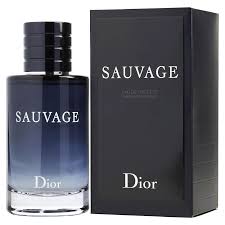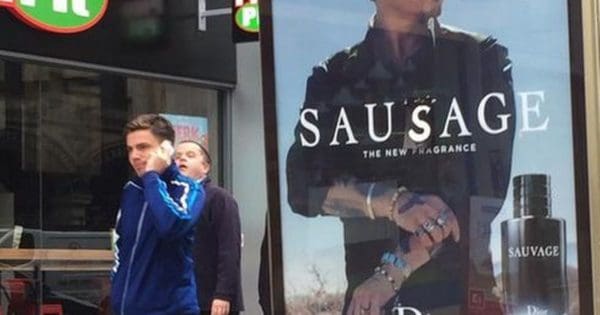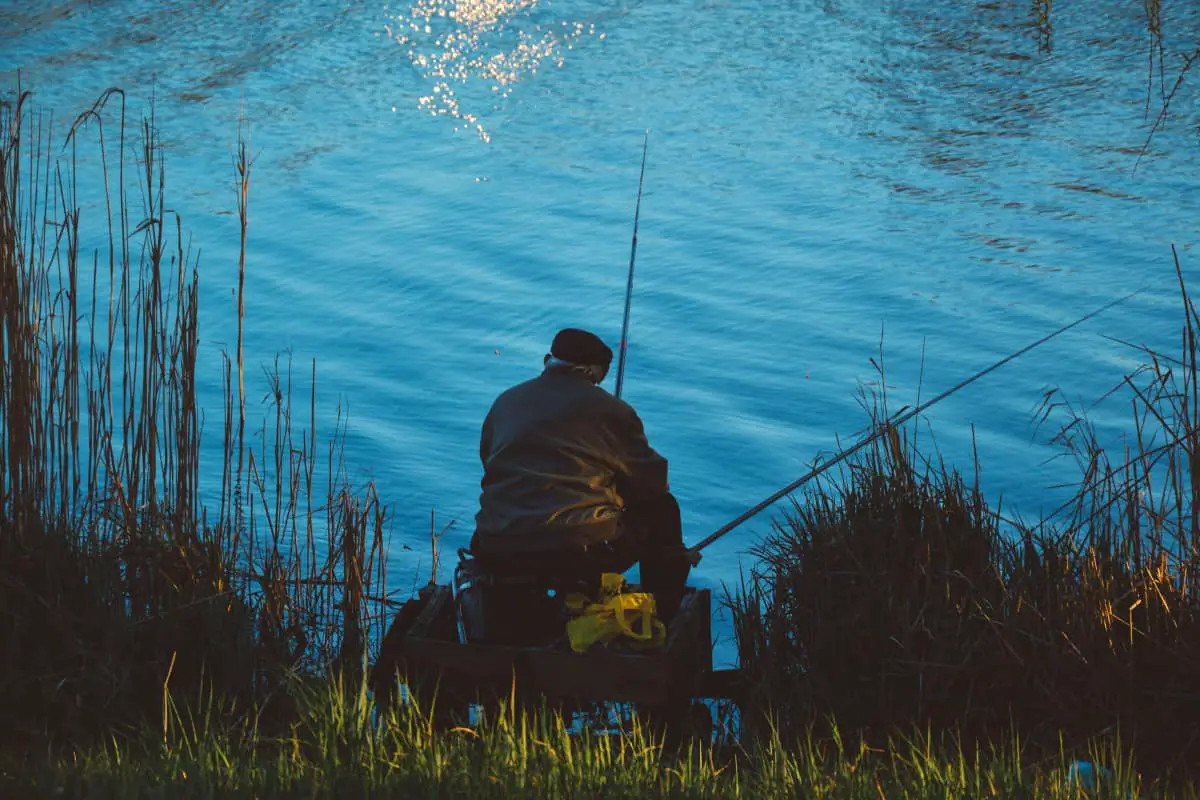Do you like the idea of river fishing, without the annoying realities? One option is an afternoon plumped in front of Deliverance, starring the late Burt Reynolds. Another option is Annie Proulx’s short story “The Wer-Trout”, included in her Heart Songs collection of the late 1990s, though first published 1982. You won’t know what to expect from this one, as Proulx’s short stories can be darkly humorous or downright dark, and you might think you’re in for a Wallace and Gromit Wer-Rabbit experience. Be forewarned, this is one of the dark ones, with a little humour to make it even darker.
I’m also reminded of The Homesman, with the psychotic episode of a woman who’s stuck in the middle of nowhere with no social support (and past the point where she can seek it out herself). I’m reminded also a short story by Keri Hulme from her Te Kaihau collection, “King Bait“, which is more clearly magical realism. The magical realism in Proulx’s story could be interpreted as character invention, or part of a tall tale. The tall tale is a strong part of masculine, living-in-the-wild tradition — that’s probably where the genre was birthed.
This story is written in present tense. An interesting exercise is to look at why Proulx wrote some of these stories in past tense and a few in present. I believe it’s because “The Wer-Trout” has an element of build-up, as in a traditional supernatural tale, and the present tense is good for maintaining a suspenseful tone.
“The Wer-Trout” makes an excellent mentor text if you’re writing:
- Two characters (or couples) living different but parallel lives
- Creating suspenseful atmosphere
- Writing a story with magical realism elements but which is nevertheless grounded in realism
- Writing a character who is living in denial, pretending he doesn’t care, when his Anagnorisis is that he actually does.
WHAT HAPPENS IN “THE WER-TROUT”
[Rivers] has left the city to open The March Brown, a failing shop [WEAKNESS] stocked with “custom-tied flies, antique rods, imported English creels and old fishing prints, his books of Chinese poetry”. At the beginning of the story his wife leaves him [ROMANTIC OPPONENT], her exit precipitated when the woman who lives in the trailer up the road drives through their garden and mows down their little apple tree. Rivers tells himself he does not care about his wife’s departure [MISIDENTIFIED DESIRE], finding peace in his Chinese poetry and the ambiance of his empty shop: “He has found a way to cure himself of all suffering and worry by memorizing ancient Chinese poems and casting artificial flies in moving water. He is solaced by the faint parallels between his own perception of events and those of the string-bearded scholars of the Tang, enjoying, as he does, a sad peace at the sight of feathered ephemera balanced on the dark-flowing river.” Realizing that all his ambition is gone, he “doesn’t know if this is contentment or deadly inertia.”
Understanding Annie Proulx by Karen Lane Rood
THE TWO-SIDED NATURE OF REPOSE
This paradox around inertia/idleness/relaxing seems to be at the heart of the themes in this story. Others have noticed the same thing, in which the concept of repose forms a kind of contronym:
When the academic year comes to an end, I find myself sprawled on the couch, re-watching old episodes of British comedy panel shows on a loop. I cannot tell if I am depressed or taking an indulgent break.
As busy as we think we are today, people were complaining about business back in 1982. Traditionally, the rural life is considered the arena of relaxation (symbolised by all the hobby equipment Rivers sells in his shop), whereas city life is considered the arena of work and productivity. While this distinction has its problems (farming and rural shopkeeping requires many hours’ labour, though they may be lower in stress), the idle/busy distinction is nevertheless a distinction maintained in city minds. I believe Proulx is encouraging us to examine that part of our rural idyllic collective imagination. She makes sure to tell us that Sauvage works very long hours, lingering on descriptions of how his headlights look as he leaves in darkness and comes home in equal darkness.
On the same day Rivers’s neighbour, Sauvage, the husband of the woman who smashed the apple tree [PROXY OPPONENT], comes home to discover his wife eating a mouse. Because she has thrown their telephone in a sink full of hot water, Sauvage rushes to River to call an ambulance to take her to a mental hospital.
Visiting Rivers’s shop the next day, Sauvage proposes a fishing trip to the Yellow Bogs in the north-country swamps, a place he has heard about from his French Canadian grandfather, who spoke of the huge brook trout to be found there. The two men set out on their adventure, which reads like a parody of Ernest Hemingway’s “Big Two-Hearted River” (1925, in which Nick Adams gains a measure of psychological renewal after the trauma of the First World War.
On the trip Rivers plunges into a fantasy world of his own making. An alcoholic who has not had a drink in six years, he begins drinking heavily. While fishing apart from sauvage, he takes off all his clothes except his boots, wades into the water, and fishes with his shirt wrapped around his head as protection against black flies. After he dresses and returns to camp, Sauvage, who has seen him through the fog but not recognized him, says there is another, crazy fisherman in the bogs. Thinking to scare Sauvage [PLAN], Rivers tells him he saw the Wer-Trout (man-trout), a being with a man’s body and a trout’s head, who goes after fishermen who catch female trout. “That’s how come our wives are gone,” Rivers adds. “In the daytime when we weren’t there the Wer-Trout came around …. and scared them away”. Sauvage laughs off Rivers’s story [BIG STRUGGLE], but later, alone in his tent, Rivers pulls out his last bottle of whisky and sees his face distorted in the curve of the glass, “the chinless thorat, the pale snout, the vacant rusted eyes of the Wer-Trout”. Having become a grotesque embodiment of all the pain he has sought to avoid, he finally glimpses his own culpability [ANAGNORISIS] in the failure of his marriage.
Understanding Annie Proulx by Karen Lane Rood
MASCULINE COMMUNICATION
I feel this is a commentary on masculine communication, or lack thereof. Annie Proulx really does seem to be a part of this culture, though gendered female in life. It’s quite amazing. In any case, it seems that, aided by alcohol, Rivers would like to open up about the situation with their wives, rather that this displacement activity of fishing. But Sauvage isn’t having any of it. He’s a rough, manly man who goes into nature to escape his domestic problems, not to indulge in them. He retreats into his own tent, angry with Rivers for bringing his wife up in the context of a joke.
THE WOMEN OF “THE WER-TROUT”
The women are unnamed archetypes. Sauvage’s wife is described like a modern (Greek) Gorgon — a woman with hair made of living, venomous snakes. Her eyes turn men into stone.
Rivers has noticed the wife driving the Jeep up from the mailbox at the base of the mountain, her animal-brown hair long and tangled, shooting away from her head like dark, charged wires, her beaked nose, bloodless lips, black eyes like wet stones.
But in this story, Rivers sees the woman as a crow. Later she will mow down his apple tree with her wagon. Crows are known to feed on apples if you don’t put bird nets on them.
The wives are linked — whereas Sauvage’s wife is compared to a crow, Rivers’ wife likes to embroider birds. By linking the wives, Proulx also links the husbands. She’s creating two couples living in parallel.
SETTING OF “THE WER-TROUT”
As she always does, Proulx makes a strong connection between character and environment. Characters who can’t cope with the harsh environment are spat out:
In “The Wer-Trout”, Sauvage’s wife seems unhinged by living in a trailer in an isolated spot “at the base of the mountain,” and Sauvage returns home one day to find her eating a mouse; she is hospitalized. Thus the decay Proulx identifies encompasses not just the effect of climate on manmade structures, but also the corrosive effect it has on the psyche of individual characters.
The Geographical Imagination of Annie Proulx: Rethinking Regionalism edited by Alex Hunt
The weather is especially important to a story set in Northern Vermont:
The stories in Proulx’s Heart Songs suggest that newcomers to northern Vermont will be unable to cope with the weather and this factors in their decisions to live. […] In “The Wer-Trout”, Rivers’s wife leave him during the late wet spring to return to the city, sick of living “on a back road where tongue-tied, hostile natives squat in claptrap trailers.” It would seem these transplants, in addition to their personal problems, cannot manage the severity and monotony of the northern Vermont climate, and since they have the means to leave, they do.
The Geographical Imagination of Annie Proulx: Rethinking Regionalism edited by Alex Hunt
CHARACTER NAMES
Annie Proulx likes to use unabashedly symbolic names. She uses them here for the two main characters.
Because of Dior’s marketing, I’m familiar with Sauvage from this:

Which frankly was crying out for this modification on billboards:

ESPECIALLY since the name is meant to be so evocative of manliness. In English it’s also a common wine term:
Sauvage is a French term meaning “wild” or “natural.” There are three things it might refer to. First, when appearing in a tasting note, it might mean gamy, earthy or forest floor flavours. Second, it might reference a wine that was fermented with wild or indigenous yeasts. Finally, I’ve also seen it refer to a sparkling wine, to indicate that no dosage (a sweet syrup added just before bottling) has been added, making it very dry, even drier than a brut sparkling wine.
Dr. Vinny
Then there’s Rivers, who is has chosen for himself an equally symbolic name as his French-Canadian neighbour. His father’s name was Riverso, meaning “Misfortune, Reverse, Wrong Side”. I have a similar family name — it started out as Eustace (in French) but was shortened to Stace at some point, probably because it was being shortened naturally anyway, but also perhaps because it rhymes with English ‘useless’.
The Symbolism of the River in Storytelling
What’s the new thing Annie Proulx has done with the river and symbolism in this story? It’s authentic genius. I believe Proulx’s rivers can always be tied to the fatalistic nature of life — plonk certain archetypes in a certain environment and just see what always happens. But rivers also contain a paradox — they are slow in some places, fast in others. Moreover, we tend to sit by rivers, watching them move past us — this effect is seen no more clearly than when river fishing. The moving nature of the river underscores our fixed position beside it. This ties back to the dual nature of repose — sitting by the river fishing can be considered a fun pastime, but that kind of idle repose can equally be a torture, as it turns out in this story. Quietude is what drove the women away.
STORY STRUCTURE OF “THE WER-TROUT”
Two men are in superficial, dick-waving conflict with each other, but this stands as proxy for another kind of deeper conflict: concerning that of their respective wives, who aren’t there to catch it.
SHORTCOMING
This is the story of two men, but for storytelling purposes they are one and the same man.
They are unable to communicate well, but despite their wish for a solitary rural life, they do need company. They will try to find it in each other.
Rivers is never a sympathetic character. He has his sights set on ‘something more’ with the woman next door (presumably at least 20 years younger). He makes a rude gesture when she doesn’t wave, though he waits until she looks away before making it. Yet we do feel some sympathy for him. It’s not a good feeling to constantly be ignored by a neighbour, especially when you’ve moved somewhere to enjoy a rural lifestyle, with thoughts of making friends with your neighbours.
DESIRE
Overall, Rivers and Sauvage want to live in rural Vermont and lead quiet, happy lives with the love of their lives. That’s the long-term desire underpinning everything, but that’s far too broad for the purposes of a short story.
In this particular short story, two men want to find company in each other to paper over the fact that their wives are gone. They think a fishing trip would be good for this purpose.
Because they’re both telling themselves that it’s the act of fishing that’s the real thing they want, they head off on a quest for a really big fish, part of folklore. But the quest for the massive trout is a conscious desire.
OPPONENT
The opposition web involves men and their wives, then each other, as they try to clumsily find solace in each other’s company.
Of course, they are each their own worst enemies as well — Sauvage because he’s not able to communicate with another man, and Rivers because of that and also because he mistakenly thinks alcohol will help him in that regard. It’s significant that these men are neighbours — the geographical proximity tends to highlight to the reader their similar (parallel) lives. Like the four men in Deliverance, or each character in Winnie-the-Pooh, each of these characters represents a different aspect in men in general.
PLAN
Sauvage suggests the fishing trip, so they prepare for the trip and go.
Change of plan — they’re not getting on very well so they split up.
Further change of plan — Rivers wants to antagonise Sauvage and when he sees the opportunity he pounces.
BIG STRUGGLE
The Battle is the naked-man conversation between Rivers and Sauvage, in which Sauvage won’t talk about his wife, or engage in Rivers’ churlish attempts to talk about it, and retreats inside his tent.
ANAGNORISIS
This part of narrative structure is often emphasised in a short story, and “The Wer-Trout” is a good example of a short story in which the Anagnorisis is the main point.
By placing the mouse in the pan, Rivers tips over into seeing himself as a horrible person. But we deduce this is the end of a long line of wrongs. Those wrongs are left off the page, but we’ve had enough snippets of conversation between Rivers and his wife to guess that he’s put his needs above hers. It’s masterful that Proulx leaves this off the page. I did get the sense, reading the wife’s dialogue that there’s nothing unusual in the reasons for his wife’s leaving — that’s why it’s not the main part of the story. A wife leaving a husband because she can’t cope with rural life is a story that feels done before. So instead the writer has focused on the Anagnorisis phase of the story.
NEW SITUATION
There’s an extrapolated ending, in which we know what’s going to happen without it being on the page. (The words end at the Anagnorisis, which can make short stories seem a bit perplexing to the uninitiated.)
Rivers won’t let Sauvage away with his attempt at escaping difficult conversation, and mean-spiritedly places a dead mouse in Sauvage’s pan for him to find later. The reader knows that of course Sauvage will be reminded of his wife’s psychotic episode when he sees this. It will ruin the trip for him, and possibly ruin future trips. It will certainly cement the rift between neighbours who might otherwise find solace in each other.
To tie up the conscious desire of catching the delicious trout, Sauvage has success (because he’s not drunk) but this story is still a tragedy for him, because he doesn’t get what he needs — someone to provide emotional support in a difficult time. He probably thought Rivers was going to be a sage father figure, especially after Rivers did him the courtesy of leaving him to use the phone in peace, but drunk Rivers is quite a different character.

